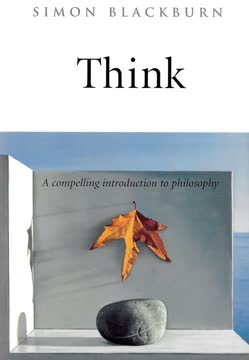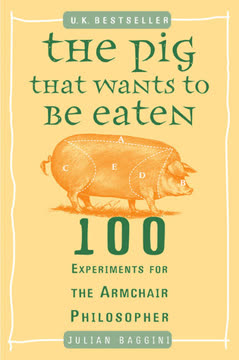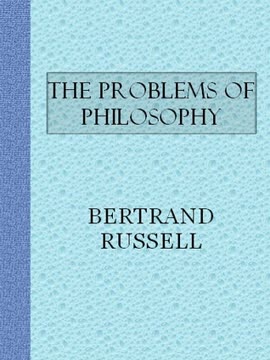मुख्य निष्कर्ष
1. प्राचीन विश्व ने पश्चिमी विचारों की नींव रखी
सत्य हमारे चारों ओर की दुनिया में निवास करता है।
प्रारंभिक अन्वेषण। प्राचीन ग्रीक दार्शनिकों जैसे थेल्स ने ब्रह्मांड के लिए तर्कसंगत व्याख्याओं की खोज की, मिथकीय कथाओं से दूर होते हुए। थेल्स ने प्रस्तावित किया कि सब कुछ पानी से बना है, जो वैज्ञानिक विचार की शुरुआत को चिह्नित करता है। पायथागोरस ने गणित को ब्रह्मांड को समझने की कुंजी माना, जिसने बाद के विचारकों जैसे प्लेटो को प्रभावित किया।
नैतिक और नैतिकता पर ध्यान। सुकरात ने नैतिकता पर ध्यान केंद्रित किया, अच्छे जीवन और न्याय के बारे में धारणाओं पर सवाल उठाया। उनके छात्र प्लेटो ने वास्तविकता और ज्ञान की प्रकृति का अन्वेषण किया, जबकि अरस्तू ने अवलोकन और तर्क पर जोर दिया। इन विचारकों ने दर्शनशास्त्र की प्रक्रियाओं, सोचने के तरीकों और विचारों को व्यवस्थित करने के तरीकों की स्थापना की।
पूर्वी दार्शनिकताएँ। इसी समय, पूर्वी दार्शनिकताएँ जैसे ताओवाद और बौद्ध धर्म उभरीं, जो नैतिक और राजनीतिक दार्शनिकता पर केंद्रित थीं। कन्फ्यूशियस ने सामाजिक सामंजस्य और नैतिक आचरण पर जोर दिया, जबकि सिद्धार्थ गौतम ने इच्छाओं के उन्मूलन के माध्यम से ज्ञान की खोज की। ये विविध दृष्टिकोण भविष्य की दार्शनिक जांच के लिए आधार तैयार करते हैं।
2. मध्यकालीन दार्शनिकता ने विश्वास और तर्क को सुलझाने का प्रयास किया
जो जीवन परखा नहीं गया, वह जीने के लायक नहीं है।
विश्वास और तर्क का एकीकरण। मध्यकालीन दार्शनिकता ग्रीक दार्शनिकता को धार्मिक सिद्धांतों के साथ सुलझाने के प्रयासों से पहचानी गई। संत ऑगस्टाइन ने प्लेटोनिज़्म को ईसाई विचार में समाहित किया, जबकि बुथियस ने अरस्तू की तर्कशास्त्र का अनुवाद किया। इस अवधि में स्कोलास्टिसिज़्म का उदय हुआ, जिसने विश्वास को सही ठहराने के लिए संवादात्मक तर्क का उपयोग किया।
पूर्वी प्रभाव। इस्लामी विद्वानों ने ग्रीक ग्रंथों को संरक्षित और अनुवादित किया, उन्हें यूरोप में पेश किया। अविसेना ने आत्मा और शरीर के बीच के संबंध का अन्वेषण किया, जबकि अवेरोइस ने दार्शनिकता और धर्म को सुलझाने का प्रयास किया। इन विचारकों ने मध्यकालीन विश्व के बौद्धिक उथल-पुथल में योगदान दिया।
डोग्मा को चुनौती। धार्मिक विचारों की प्रभुत्व के बावजूद, कुछ दार्शनिकों ने पारंपरिक ज्ञान को चुनौती दी। संत अंसल्म ने तर्क के माध्यम से भगवान के अस्तित्व को साबित करने का प्रयास किया, जबकि निकोलस वॉन क्यूज़ ने भगवान के "अन्य-नहीं" के रूप में अवधारणा का अन्वेषण किया। इन विचारकों ने पुनर्जागरण के बौद्धिक क्रांतियों के लिए मार्ग प्रशस्त किया।
3. पुनर्जागरण ने शास्त्रीय विचारों का पुनर्जन्म किया
संदेह एक सुखद स्थिति नहीं है, लेकिन निश्चितता बेतुकी है।
शास्त्रीय विचारों की पुनः खोज। पुनर्जागरण ने ग्रीक और रोमन संस्कृति में नवीनीकरण की रुचि को देखा, जिसने राजनीति, कला और विज्ञान पर नए दृष्टिकोणों को जन्म दिया। निकोलो मैकियावेली ने द प्रिंस में शक्ति की प्रकृति का अन्वेषण किया, जबकि मिशेल डी मोंटेन ने अपने निबंधों में पारंपरिक मूल्यों पर सवाल उठाया। इस अवधि ने धार्मिक डोग्मा से मानव-केंद्रित जांच की ओर एक बदलाव को चिह्नित किया।
वैज्ञानिक क्रांति। वैज्ञानिक क्रांति ने ब्रह्मांड के बारे में स्थापित विश्वासों को चुनौती दी। निकोलस कोपरनिकस ने एक सूर्यकेंद्रित मॉडल का प्रस्ताव रखा, जबकि गैलीलियो गैलीली ने इसके लिए साक्ष्य प्रदान किया। इन खोजों ने चर्च की प्राधिकृति को कमजोर किया और नए वैज्ञानिक और दार्शनिक दृष्टिकोणों के लिए मार्ग प्रशस्त किया।
व्यक्तिवाद पर जोर। पुनर्जागरण के विचारकों ने व्यक्तिगत अनुभव और तर्क के महत्व पर जोर दिया। फ्रांसिस बेकन ने अनुभवात्मक अवलोकन का समर्थन किया, जबकि रेनै डेस्कार्टेस ने तर्कसंगत संदेह के माध्यम से निश्चितता की खोज की। ये विचार ज्ञानोदय और आधुनिक विज्ञान के उदय की नींव रखी।
4. तर्क का युग तर्कशीलता और व्यक्तिगत स्वतंत्रता पर जोर देता है
मैं सोचता हूँ, इसलिए मैं हूँ।
तर्कवाद और अनुभववाद। तर्क का युग दो प्रमुख दार्शनिक स्कूलों के विकास का गवाह बना: तर्कवाद और अनुभववाद। रेनै डेस्कार्टेस ने तर्क की शक्ति पर जोर दिया, जबकि जॉन लॉक ने अनुभव के महत्व पर बल दिया। ये विपरीत दृष्टिकोण पश्चिमी दार्शनिकता के पाठ्यक्रम को आकार देते हैं।
सामाजिक अनुबंध सिद्धांत। थॉमस हॉब्स और जीन-जैक्स रूसो जैसे विचारकों ने सरकार की प्रकृति और नागरिकों के अधिकारों का अन्वेषण किया। उन्होंने समाज के मॉडल का प्रस्ताव रखा, जहाँ व्यक्ति सुरक्षा और व्यवस्था के बदले कुछ स्वतंत्रताओं को छोड़ने के लिए सहमत होते हैं। ये विचार अमेरिकी और फ्रांसीसी क्रांतियों पर प्रभाव डालते हैं।
नैतिक और राजनीतिक दार्शनिकता। इमैनुएल कांट ने तर्कवाद और अनुभववाद को सुलझाने का प्रयास किया, जबकि नैतिकता के आधारों का भी अन्वेषण किया। जेरमी बेंटम ने उपयोगितावाद का समर्थन किया, जिसका उद्देश्य सबसे अधिक संख्या के लिए खुशी को अधिकतम करना था। इन विचारकों ने आधुनिक नैतिक और राजनीतिक विचारों की नींव रखी।
5. 19वीं सदी ने नए विचारधाराओं और सामाजिक आलोचनाओं का उदय देखा
हर आदमी अपनी दृष्टि के क्षेत्र की सीमाओं को दुनिया की सीमाओं के रूप में लेता है।
आदर्शवाद की आलोचना। आर्थर शोपेनहॉयर ने हेगेल के आदर्शवाद को चुनौती दी, मानव अस्तित्व में इच्छा और दुख की भूमिका पर जोर दिया। लुडविग फेयरबाख ने धर्म की आलोचना की, यह तर्क करते हुए कि धर्मशास्त्र मानवशास्त्र है। इन विचारकों ने मानव स्वभाव और समाज पर नए दृष्टिकोणों के लिए मार्ग प्रशस्त किया।
सामाजिक और आर्थिक सिद्धांत। कार्ल मार्क्स ने ऐतिहासिक भौतिकवाद का सिद्धांत विकसित किया, यह तर्क करते हुए कि वर्ग संघर्ष सामाजिक परिवर्तन को प्रेरित करता है। जॉन स्टुअर्ट मिल ने व्यक्तिगत स्वतंत्रता और सामाजिक सुधार का समर्थन किया। इन विचारकों ने 19वीं सदी में राजनीतिक और आर्थिक विचारों के पाठ्यक्रम को आकार दिया।
अस्तित्ववाद और व्यक्तिवाद। सोरेन कीर्केगार्ड ने विश्वास की प्रकृति और व्यक्ति के भगवान के साथ संबंध का अन्वेषण किया। फ्रेडरिक नीत्शे ने पारंपरिक नैतिकता को चुनौती दी और "भगवान की मृत्यु" की घोषणा की। इन विचारकों ने अस्तित्ववाद और व्यक्तिगत स्वतंत्रता और जिम्मेदारी पर जोर देने की नींव रखी।
6. आधुनिक विश्व अस्तित्ववाद और ज्ञान की सीमाओं से जूझता है
मनुष्य कुछ ऐसा है जिसे पार करना है।
अस्तित्ववाद और अस्तित्व। फ्रेडरिक नीत्शे की "भगवान की मृत्यु" की घोषणा ने आधुनिक विश्व में अर्थ के संकट को जन्म दिया। दार्शनिकों जैसे कार्ल जास्पर्स और मार्टिन हाइडेगर ने अस्तित्व की प्रकृति और व्यक्ति की अर्थ की खोज का अन्वेषण किया। इन विचारकों ने अस्तित्ववाद और व्यक्तिगत स्वतंत्रता और जिम्मेदारी पर जोर देने की नींव रखी।
भाषाई विश्लेषण। लुडविग विट्गेंस्टाइन ने भाषा की सीमाओं और अर्थ की प्रकृति का अन्वेषण किया। एडमंड हुस्सरल ने फेनोमेनोलॉजी विकसित की, जो चेतना का अध्ययन करने की एक विधि है। इन विचारकों ने विश्लेषणात्मक दार्शनिकता के पाठ्यक्रम को आकार दिया और भाषा और अनुभव पर जोर दिया।
सामाजिक और राजनीतिक विचार। दार्शनिकों जैसे अहद हआम और विलियम डु बोइस ने पहचान, जाति और सामाजिक न्याय के मुद्दों को संबोधित किया। इन विचारकों ने पारंपरिक शक्ति संरचनाओं को चुनौती दी और समानता और मुक्ति का समर्थन किया। उनके विचार समकालीन सामाजिक और राजनीतिक आंदोलनों में गूंजते रहते हैं।
7. समकालीन दार्शनिकता पहचान, भाषा और शक्ति का अन्वेषण करती है
भाषा एक त्वचा है।
पोस्ट-स्ट्रक्चरलिज़्म और डीकंस्ट्रक्शन। रोलैंड बार्थ ने भाषा की प्रकृति और इसके शक्ति के साथ संबंध का अन्वेषण किया। जैक्स डेरिडा ने डीकंस्ट्रक्शन विकसित की, जो ग्रंथों का विश्लेषण करने और उनके अंतर्निहित विरोधाभासों को प्रकट करने की एक विधि है। इन विचारकों ने अर्थ और व्याख्या के पारंपरिक धारणाओं को चुनौती दी।
नारीवादी दार्शनिकता। लुसे इरिगारे और जूलिया क्रिस्टेवा ने लिंग, भाषा और शक्ति के बीच संबंध का अन्वेषण किया। उन्होंने पारंपरिक दार्शनिक अवधारणाओं को चुनौती दी और पहचान और भिन्नता के बारे में सोचने के नए तरीकों का समर्थन किया। उनके विचारों ने नारीवादी सिद्धांत और प्रथा पर गहरा प्रभाव डाला है।
सामाजिक और पर्यावरणीय नैतिकता। दार्शनिकों जैसे पीटर सिंगर और अर्ने नास ने पशु अधिकारों और पर्यावरणीय नैतिकता के मुद्दों को संबोधित किया। उन्होंने मानव-केंद्रित दृष्टिकोणों को चुनौती दी और जीवन के लिए एक अधिक समावेशी और सतत दृष्टिकोण का समर्थन किया। उनके विचार समकालीन नैतिक बहसों को आकार देते रहते हैं।
अंतिम अपडेट:
FAQ
What's The Philosophy Book about?
- Comprehensive Overview: The Philosophy Book by Will Buckingham provides a thorough exploration of major philosophical ideas and thinkers throughout history, from ancient to modern times.
- Key Philosophers and Theories: It covers influential figures like Socrates, Plato, Aristotle, Descartes, Kant, Nietzsche, and Marx, detailing their contributions to ethics, metaphysics, epistemology, and more.
- Accessible Presentation: The book simplifies complex concepts, making them accessible to readers of all backgrounds, using diagrams, illustrations, and quotes to clarify philosophical ideas.
Why should I read The Philosophy Book?
- Beginner-Friendly: Designed for readers without a background in philosophy, it offers a clear introduction to complex ideas without overwhelming jargon.
- Engaging Format: The use of visual aids and witty quotes makes the material engaging and helps reinforce understanding and retention.
- Broad Coverage: It provides a comprehensive resource for exploring the history of philosophy and its relevance to contemporary issues.
What are the key takeaways of The Philosophy Book?
- Philosophy as Inquiry: Emphasizes that philosophy is about questioning and exploring fundamental truths, not just finding answers.
- Interconnected Ideas: Illustrates how philosophical ideas are interconnected, showing the influence of earlier thinkers on later ones.
- Practical Application: Encourages applying philosophical thinking to personal life, promoting critical thinking and self-reflection.
What are the best quotes from The Philosophy Book and what do they mean?
- "The unexamined life is not worth living.": Socrates highlights the importance of self-reflection and critical thinking for a meaningful life.
- "Knowledge is power.": Emphasizes the value of knowledge in empowering individuals to make informed decisions and progress.
- "Man is the measure of all things.": Protagoras suggests that human perception shapes our understanding of reality, indicating truth's subjectivity.
How does The Philosophy Book define knowledge?
- Justified True Belief: Discusses the classical definition of knowledge as “justified true belief,” foundational in epistemology.
- Skepticism and Certainty: Addresses skepticism, questioning whether true knowledge is possible, and presents philosophical responses.
- Empirical vs. Rational Knowledge: Contrasts knowledge gained through sensory experience with that derived from reasoning.
What is the significance of the Socratic method in The Philosophy Book?
- Dialogue and Inquiry: Presented as a foundational approach, emphasizing dialogue and questioning to uncover deeper truths.
- Moral Exploration: Used by Socrates to explore ethical concepts, prompting examination of beliefs about virtue and morality.
- Philosophical Legacy: Laid the groundwork for future discourse, influencing countless thinkers and shaping philosophical practice.
How does The Philosophy Book address the relationship between philosophy and science?
- Philosophy as Foundation: Discusses how philosophy provides foundational principles for scientific inquiry and theory development.
- Limits of Empirical Knowledge: Highlights limitations of empirical knowledge, arguing that science cannot answer all philosophical questions.
- Interdisciplinary Connections: Illustrates how philosophical questions often arise from scientific discoveries, enriching both fields.
What role does ethics play in The Philosophy Book?
- Moral Philosophy Exploration: Delves into ethical theories like utilitarianism, deontology, and virtue ethics, applying them to real-world dilemmas.
- Ethics and Society: Discusses the relationship between ethics and societal norms, encouraging reflection on justice and morality.
- Practical Application: Advocates for applying ethical reasoning to everyday life, considering moral implications of actions and decisions.
How does The Philosophy Book define existentialism?
- Individual Experience Focus: Emphasizes individual existence, freedom, and choice, exploring life's meaning from a personal perspective.
- Confronting Absurdity: Discusses existentialists' confrontation with life's absurdity and inherent meaninglessness, leading to personal meaning search.
- Influential Thinkers: Highlights key figures like Sartre and Kierkegaard, showcasing their contributions to understanding human existence.
How does The Philosophy Book explore the relationship between philosophy and politics?
- Political Philosophy: Examines questions of power, justice, and the state's role, discussing thinkers like Hobbes, Rousseau, and Marx.
- Ethics and Governance: Explores how moral principles inform governance and social structures, highlighting philosophy's societal importance.
- Contemporary Issues: Links historical theories to current political challenges, encouraging application of philosophical insights to modern events.
What is the impact of feminism in The Philosophy Book?
- Feminist Philosophy: Presents feminist philosophy as a critical lens for examining traditional ideas, highlighting figures like Simone de Beauvoir.
- Critique of Patriarchy: Explores challenges to patriarchal assumptions, advocating for inclusive understanding of gender and identity.
- Intersectionality: Emphasizes intersectionality, recognizing gender's intersection with race, class, and sexuality, enriching social justice discussions.
How does The Philosophy Book illustrate the concept of dualism?
- Mind-Body Distinction: Discusses dualism through Descartes' work, arguing for mind and body as distinct substances.
- Philosophical Implications: Explores implications for understanding the relationship between mental states and physical processes.
- Critiques of Dualism: Addresses critiques, including physicalist arguments that mental phenomena can be explained physically.
समीक्षाएं
दर्शनशास्त्र की किताब को मुख्यतः सकारात्मक समीक्षाएँ मिली हैं, जिसमें इसे दर्शनशास्त्र का सुलभ परिचय और प्रमुख विचारकों का व्यापक अवलोकन देने के लिए सराहा गया है। पाठक स्पष्ट व्याख्याओं, चित्रणों और वैश्विक दृष्टिकोण की सराहना करते हैं। हालांकि, कुछ लोग इसे कुछ विषयों पर गहराई की कमी के लिए आलोचना करते हैं। यह किताब शुरुआती लोगों, छात्रों और जो लोग पुनरावलोकन करना चाहते हैं, उनके लिए अनुशंसित है। समीक्षक इसे संदर्भ गाइड के रूप में उपयोगी मानते हैं और यह भी कि यह आगे की दार्शनिक खोज में रुचि जगाने में सक्षम है। कुल मिलाकर, इसे दर्शनशास्त्र की मूल बातें समझने के लिए एक मूल्यवान संसाधन माना जाता है।
Similar Books













